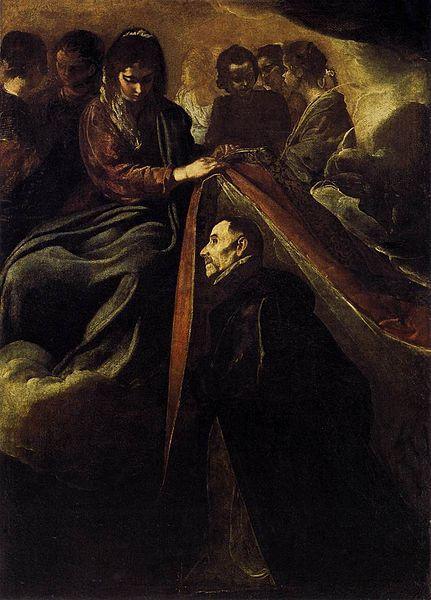Description
The painting "Saint Ildefonso Receiving the Chasuble From the Virgin" by Diego Velázquez is a masterpiece of Spanish Baroque art. This work was painted in 1623 and is currently in the Prado Museum in Madrid.
The composition of the painting is impressive. Velázquez uses a perspective technique that makes the viewer feel as if they are in the same room as the characters. The figure of Saint Ildefonso is in the center of the painting, kneeling before the Virgin Mary, who gives him the chasuble. The details of the clothing and objects in the room are incredibly realistic, demonstrating Velázquez's skill as a painter.
Color is also an important aspect of this work. Velázquez uses a palette of rich and vibrant colors, which give the painting a sense of life and movement. The gold and red tones of the Virgin's chasuble contrast with the darker tones in the room, making the figure of the Virgin stand out even more.
The story behind the painting is equally fascinating. Saint Ildefonso was a 7th century Spanish bishop who is said to have received a chasuble from the Virgin Mary in a vision. This painting represents that moment in the history of the Catholic Church. Additionally, the painting was commissioned by the Count-Duke of Olivares, who was the Prime Minister of King Philip IV of Spain. Olivares is said to have wanted the painting to be a gift to Pope Urban VIII, but it never reached its destination.
There are some lesser known aspects of this painting that are also interesting. For example, Velázquez is believed to have included his own image in the painting as one of the supporting characters. Also, the painting was restored in the 19th century and was found to have been cut away at the bottom, meaning it was originally larger than it is now.

